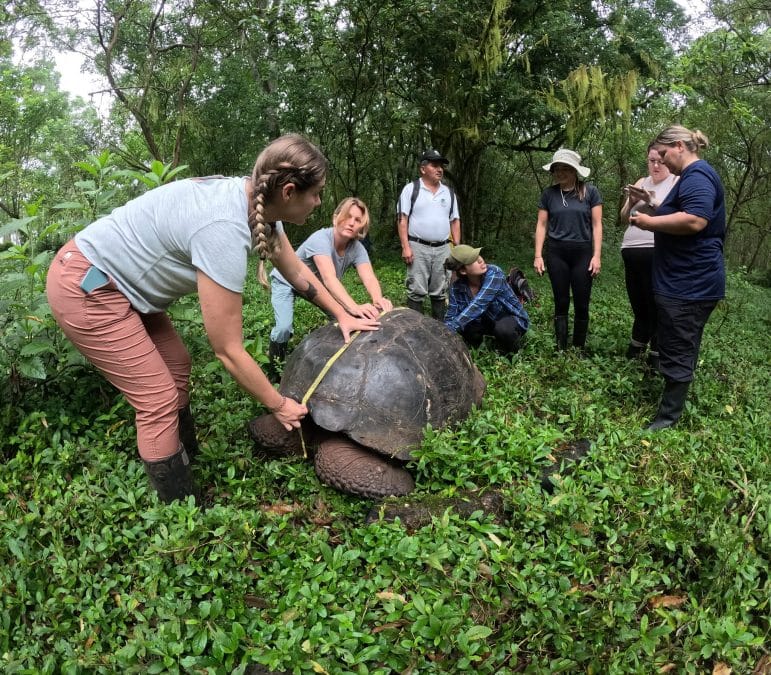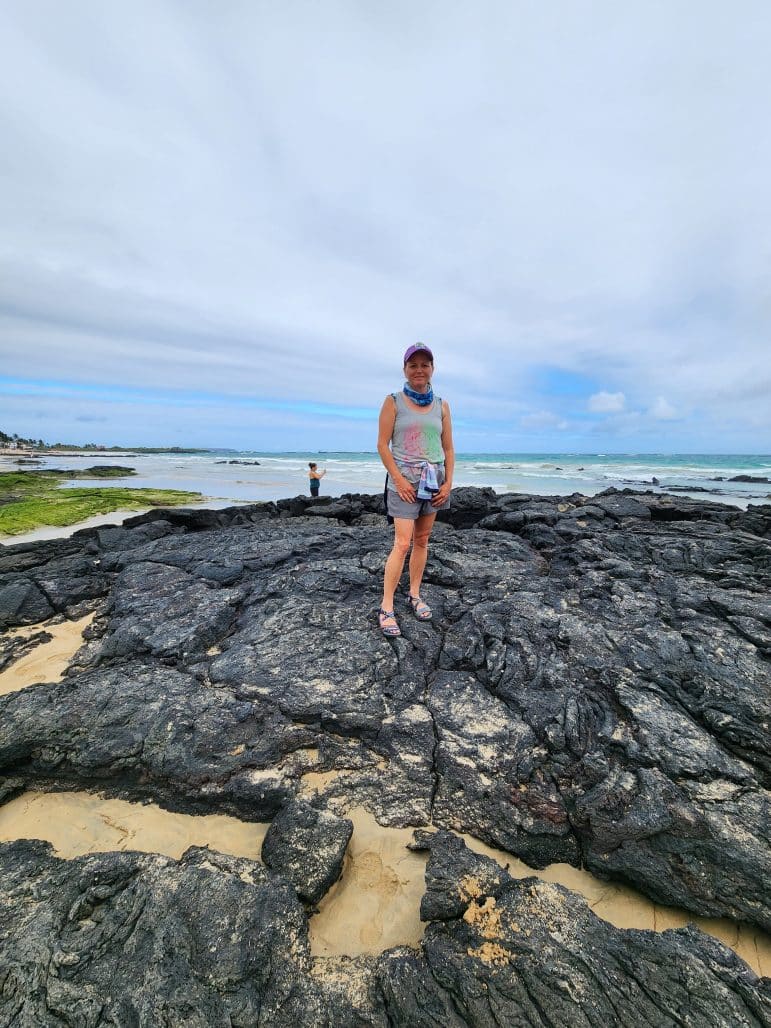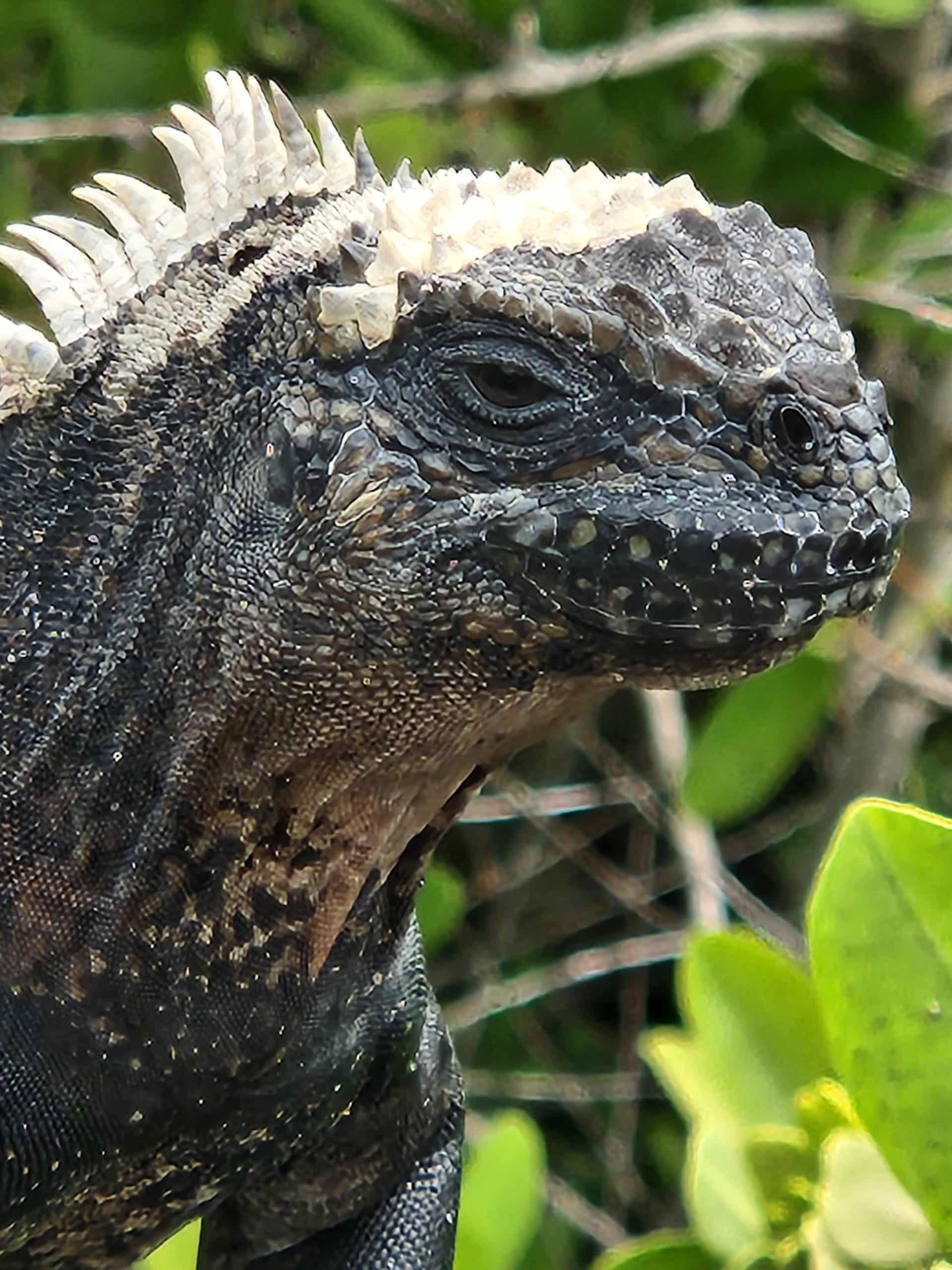From the South Orange-Maplewood School District:
MAPLEWOOD, N.J. – Over the summer, Columbia High School biology teacher Chasity Tedeschi went to the Galapagos Islands, where many years ago the rich diversity of life forms led Charles Darwin to write his theory of evolution in the landmark, On The Origin of Species.
Now that she is back from the trip, funded with the help of a $3,000 Riecke Teaching Fellowship from the Achieve Foundation (achievefoundation.org), Tedeschi has a message for anyone who may want to visit The Galapagos: Don’t go there.
“The Galapagos is a beautiful and significant place in the world, but you should NOT go there,” Tedeschi wrote to her Achieve Foundation benefactors. “More than 150,000 tourists visit the islands every year. All those people require food, water, electricity, and other products that have to be imported. They produce waste and garbage that have to be removed.”

DCIM100GOPROGOPR1514.JPG
More than 1,500 nonnative species have been introduced to the Galapagos’ fragile ecosystems, Tedeschi wrote, while the government of Ecuador spends millions of dollars to try to remove them.
Strangely enough, Tedeschi’s takeaway is proof positive that she fulfilled her mission. When she applied for the fellowship, Tedeschi had set out to study conservation in the Galapagos, a point she made clear in her application for the Rieke Fellowship.
Her journey provided plenty of opportunities to feel the thrill of following in Darwin’s footsteps.
“As a biology teacher, visiting the Galapagos is the ultimate PD (professional development),” she said. “We collected data on the giant tortoises in the El Chato reserve. On Isabela, we nearly stepped on dozens of marine iguanas.”
But most of Tedeschi’s time in The Galapagos was spent learning about the negative environmental impact people have had on the islands. Microplastics, tiny pieces of plastic that are commonly used to make skincare and dental products, have been brought into the ecosystems and are not biodegradable. Invasive species that have been introduced to the area are destroying native species.

Tedeschi standing on a lava flow on the island of Isabela, one of the youngest islands in the Galapagos.
“All these activities were geared around environmental literacy, the knowledge and skills a person needs to understand and make decisions about environmental issues,” Tedeschi said. “I am planning on adding more lessons about these issues.”
Dr. Ronald Taylor, Superintendent of the School District of South Orange & Maplewood, commended Tedeschi for her work over the summer and expressed his gratitude to the Achieve Foundation.
“It is our hope that through Ms. Tedeschi’s sharing of her experiences and photographs, her students will be inspired to work toward restoring the environment and making our planet more sustainable for all living things,” Taylor said. “We greatly appreciate the District’s partnership with the Achieve Foundation, and everyone in the organization who helped make M. Tedeschi’s trip possible, as well as all of the benefits it will bring her students.”
Eileen Neri, Executive Director of the Achieve Foundation, said helping teachers have unique experiences like Tedeschi’s that broaden their horizons and inform their instruction is a major part of the organization’s mission.
“We are thrilled to fund professional development opportunities like this that nourish our teachers’ souls and nurture their passion for learning and sharing knowledge,” said Neri. “With the start of a new school year comes more opportunities for teachers to apply for funding, and we encourage all educators to consider applying.”
The Michelle T. Riecke Teaching Fellowship was established with the Achieve Foundation in 2004 in memory of Shelley Riecke, a former Board of Education President, who passed away at age 39. The fellowship fosters outstanding teaching by enabling educators to undertake continuing education in their fields in the summer, and inspiring them to share the new knowledge they acquire with their District colleagues upon their return to school. Since 2004, Michelle T. Riecke Fellowships have provided nearly $101,500 for 80 district educators to attend summer programs that inspire excellence, innovation, and creativity in the classroom and beyond.

This marine iguana is one of the new friends Tedeschi made on her trip to the Galapagos. Marine iguanas are the only species of lizard that can spend time in the ocean.

